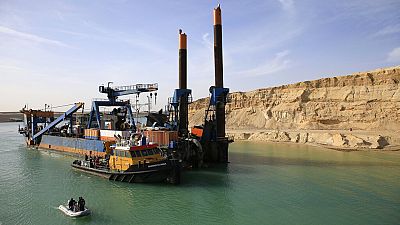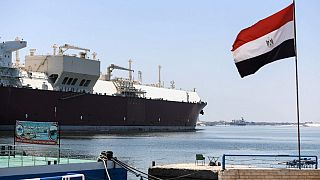Egypt
The head of the Suez Canal Authority (SCA) Osama Rabie assured Thursday that the strategic maritime passage was "not for sale" following concerns raised in Egypt by a draft law under discussion in parliament.
The Suez Canal, which sees the passage of about 10% of world maritime trade and represents one of the first sources of currency for Cairo, represents a true national symbol.
On Tuesday, the Egyptian Parliament gave its approval in principle to a bill to create a "Suez Canal Fund" which will be able to "carry out various economic activities such as the creation of investment companies and the purchase, sale, lease, issue of bonds.
What to alarm the public opinion which fears that the sovereignty of Egypt on the canal is questioned, while the country is strangled by a foreign debt of 150 billion dollars and has already devalued its currency by 57% since March.
Mr. Rabie wanted to reassure Thursday at a press conference in Ismailia (northeast) by saying that the canal cannot be "sold, leased or placed as collateral for a loan," adding that the objective is to allow investment in "huge projects.
But for the Egyptian economist Hani Toufic, this project would aim to "replace the debt of the state by the placement as collateral of the revenues of the canal.
Claims were denied by the president of the SCA, indicating that the objective was to attract foreign investment.
And to emphasize the attachment of the State to the canal, recalling, in particular, the episode of the nationalization of the passage in 1956 by then-president Gamal Abdel Nasser.
But the former head of the SCA Mohab Mamish believes that this bill "opens the door to unprecedented changes (...) that allow the presence of foreigners in the management of the canal.
Foreign investors could "change the system that has been in place for years and that has brought record profits," he told local media.
In July, the Suez Canal announced a record profit of $7 billion (about 6.7 billion euros).
The study of this bill comes as Egypt has sought assistance from the International Monetary Fund (IMF), which approved in mid-December a 46-month loan of $ 3 billion.
This financial support was granted in exchange for a program aimed at "preserving macroeconomic stability" and "paving the way for sustainable, inclusive and private sector-led growth".
The measures should also reduce public debt, "while increasing social spending.














01:00
Emotional reunions at Rafah as Palestinians cross Gaza-Egypt border
Go to video
Senegalese actress Halima Gadji dies in France
Go to video
Streamer IShowSpeed calls Ghana “Home” on Africa tour
Go to video
South African court clears sale of Nelson Mandela artefacts
01:00
Fifa pass launches to help fans travel to US for 2026 World Cup
Go to video
TikTok finalizes a deal to form a new American entity